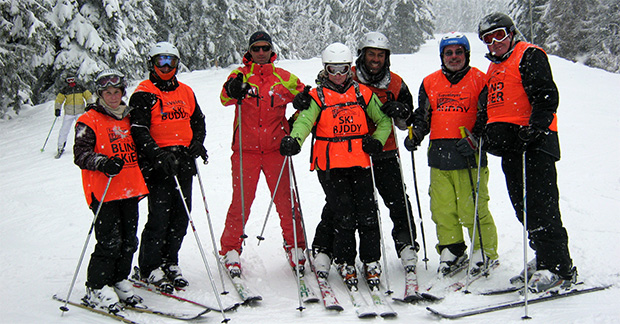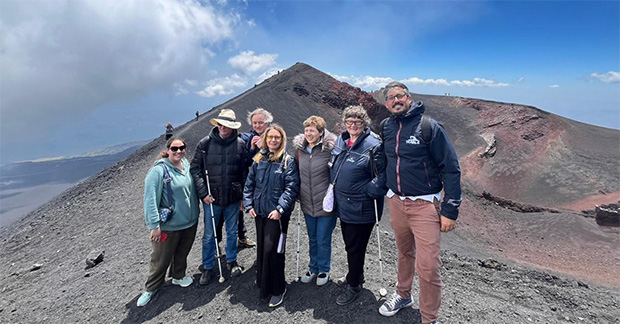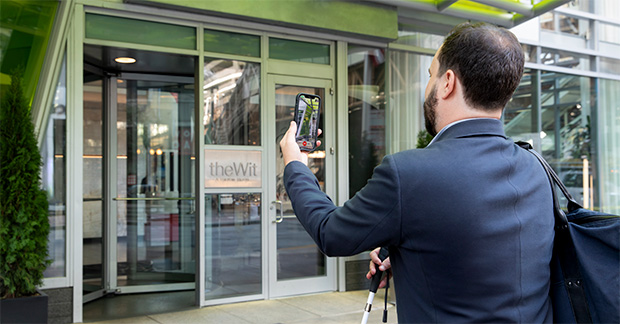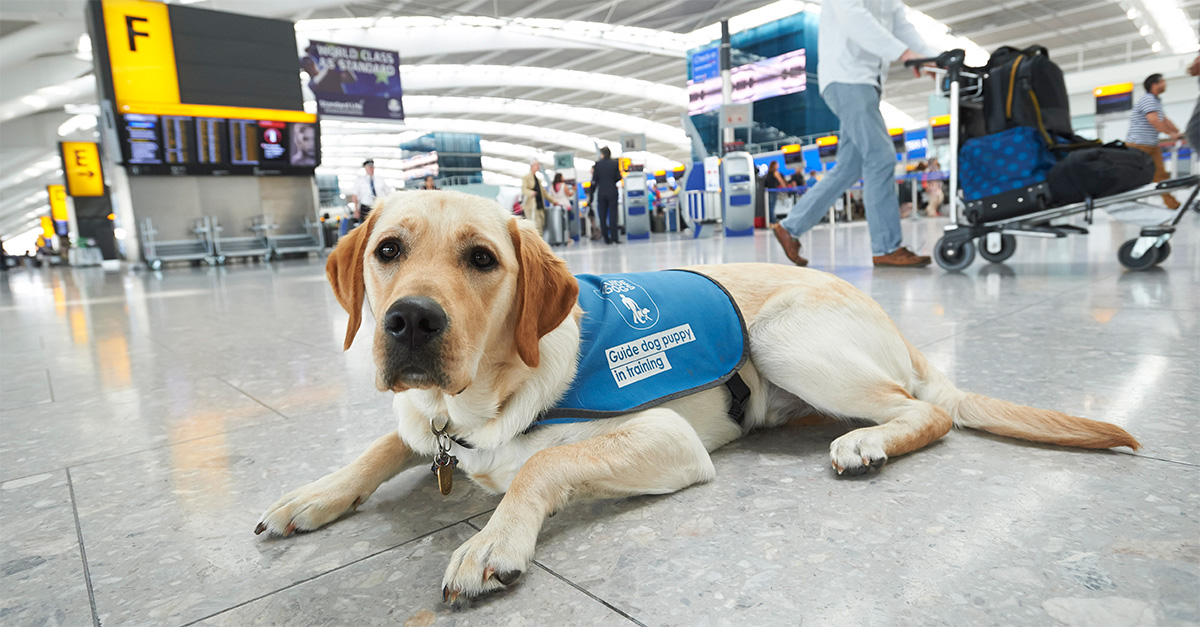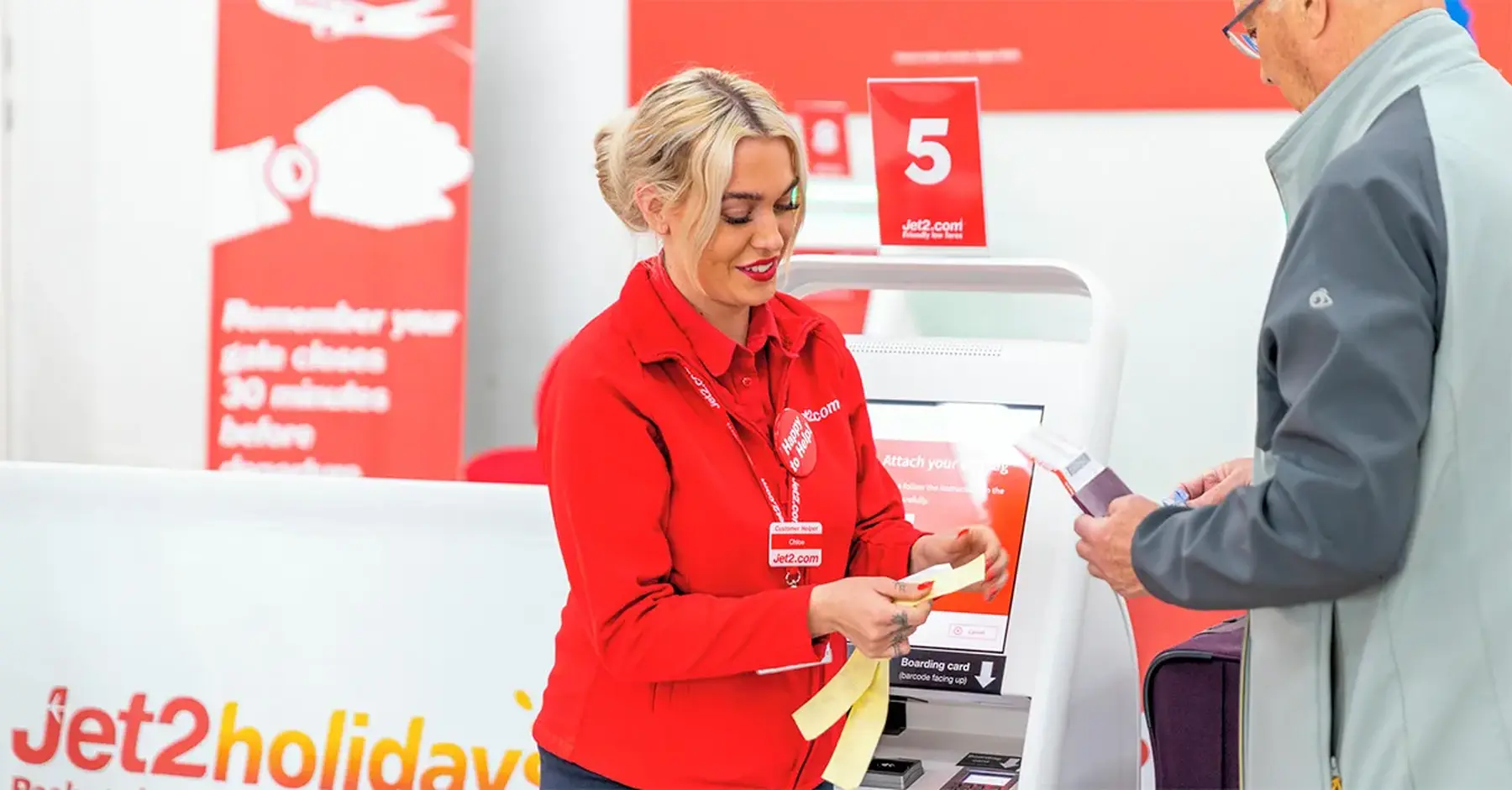You are viewing 1 of your 2 free articles
See the world: how to plan a holiday for visually-impaired travellers
From accessible websites to adventurous activities, here's how you can serve travellers with visual impairment
Click here to download and save as a PDF
There are more than two million people in the UK living with a form of sight loss, according to the NHS. However, limited vision doesn’t mean limited horizons. Many people who are blind or have a visual impairment still want to experience all that the world has to offer – and agents have an important role in ensuring their needs can be met at every stage of the journey.
Not sure where to start? Here are some factors to consider when working with visually impaired clients, from airside assistance to planning immersive trips.
How to make your website accessible
Visual impairments vary for each person. Some people may only require large, contrasting print to be able to read comfortably, while others may need to access text using a screen reader. Consider whether your website and brochures are formatted well enough to be translated by a screen reader, and include alt text (a brief description accessible to screen readers) when uploading images.
Amar Latif, founder of specialist tour operator Traveleyes, says: “Photographs sell holidays. When our screen readers fall upon the pictures and there’s a nice description of what it is, it entices us [to book].”
Planning holidays for visually-impaired travellers
Before diving into holiday planning, ask clients exactly what adaptations they require. Damiano La Rocca, founder of Seable, which provides holidays for blind and partially sighted people, says: “We ask as many details as possible. Are they fully blind or do they have some sight left? We always check if they need assistance during meals or if they require room and accommodation orientation.
It’s extremely important to know if they have any other disabilities and if there is anything they would like to pass on to the accommodation or activity provider.”
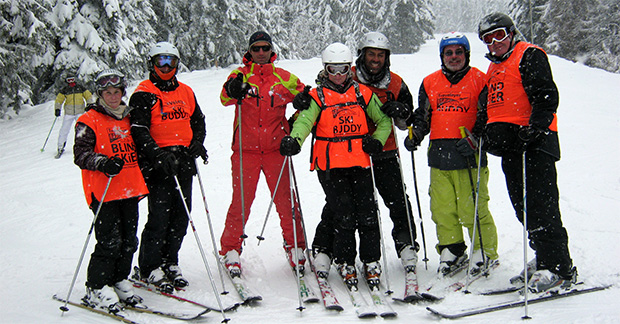
Special assistance at the airport
If you’re booking flights, this is the best time to tell the airline and airports that your client requires special assistance, though it can be requested up to 48 hours before travel. Should they be travelling with a guide dog, the airline may ask to see proof that the service animal has been trained by a recognised training organisation, or proof of relevant vaccinations; this should be stored in the dog’s ID book.
Tour operators for visually-impaired clients
One way for visually impaired travellers to get the most out of their trip is to go with a sighted companion. If they don’t typically travel with a sighted partner or friend, but are looking for something adventurous, a group tour with specialists like Seable or Traveleyes is an option.
Seable always includes one or two sighted guides on its itineraries, while Traveleyes groups are split 50/50 between blind or visually impaired travellers and sighted people. This format works because the latter’s descriptions bring a place to life, and optional room shares mean your clients can avoid single supplements. Latif says: “We’ve got a new holiday in the Loire Valley, which I’m looking forward to. We’re pairing up sighted and non-sighted travellers and putting them on tandem bikes.”
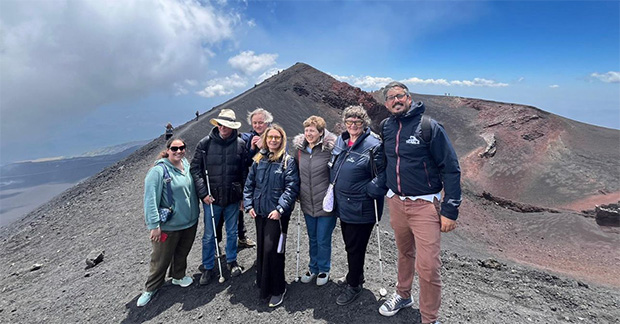
Helpful accessibility tools
Even if your client is looking for a simpler trip, such as a city break, cruise or a fly-and-flop, read up on in-destination accessibility. This can be anything from confirming whether transfers will audibly announce stops to enquiring if staff are willing to guide visually impaired travellers to facilities or read restaurant menus aloud.
Some major suppliers (such as international hotel chains and cruise companies including Royal Caribbean, Celebrity Cruises, Cunard and Carnival Cruise Line) feature aids such as Braille signage, talking lifts, tactile pathways and colour-contrasting surfaces in public areas.
If clients are looking for further assistance within their destination, apps such as Be My Eyes connect those with limited vision with sighted volunteers – and in October, Hilton announced a pioneering partnership with the virtual assistance app that means guests can video call Hilton representatives for hotel navigation help across its US and Canada portfolio.
If in doubt, don’t be afraid to ask your client questions. Latif adds: “Just say: ‘I’ve never met someone that’s blind before but I’m keen to help, so I’ll be guided by you’.
Most people want to do the right thing, and by saying that, you’re never going to do anything wrong.”
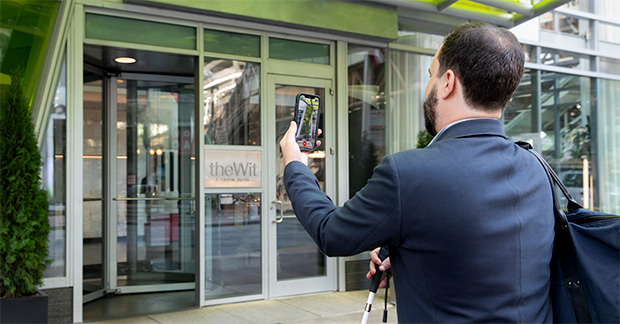
Book it
Traveleyes’ eight-day Cycling in the Loire Valley trip, departing May 17, 2025, costs from £2,699 per non-sighted person and £1,799 per sighted person, based on two sharing. Includes return rail travel from London, accommodation with breakfast, select lunches and dinners, tandem bike hire, excursions and local guides.
traveleyes-international.com
Seable is operating a five-night holiday to Sicily, departing in October 2025 and priced from £2,000 per person, based on two sharing. Includes one to two sighted guides per trip, land-based transfers, accommodation with breakfast plus listed activities and excursions, but excludes flights.
seable.co.uk
Need to know

Content creator and accessibility consultant Sassy Wyatt shares her advice for agents
? As a blind traveller myself, booking a holiday is about more than just securing flights and hotels; it’s about building a seamless, inclusive experience from start to finish. Clear and accurate information is the foundation of an enjoyable trip, and proactive planning can transform potential barriers into opportunities for memorable adventures.
? When planning a trip, I rely on thoughtful questions to ensure my needs are met. Do I need meet-and-assist services at the airport? Am I travelling with my guide dog? Are accessible rooms with tactile numbering or proximity to lifts available? Precise, upfront details like this are essential. I rely on transparent communication about accessibility, whether it’s ensuring hotel facilities meet my requirements, arranging guide dog-friendly transport, or booking audio-described activities.
? Sensory-rich activities such as vineyard tours, tactile museum exhibits, or cooking classes make trips unforgettable. Accessible restaurants with tactile menus and guide dog-friendly policies are another must.
PICTURES: Heathrow Airport; Seable; Traveleyes/Picasa

